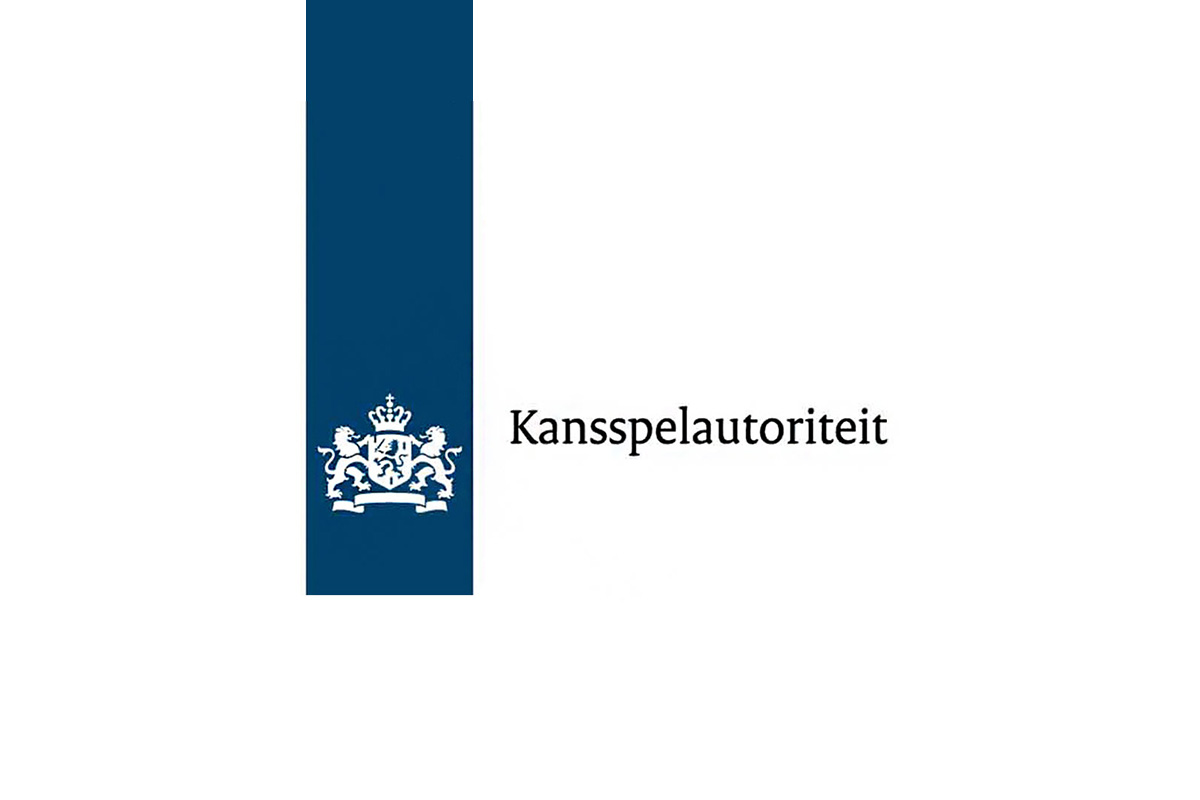Compliance Updates
UKGC: William Hill Group businesses to pay record £19.2m for failures
Three gambling businesses owned by William Hill Group will pay a total of £19.2 million for social responsibility and anti-money laundering failures.
WHG (International) Limited, which runs williamhill. com, will pay £12.5 million, Mr Green Limited, which runs mrgreen. com, will pay £3.7 million and William Hill Organization Limited, which operates 1,344 gambling premises across Britain, will pay £3 million.
Andrew Rhodes, Gambling Commission chief executive, said: “When we launched this investigation the failings we uncovered were so widespread and alarming serious consideration was given to licence suspension.
“However, because the operator immediately recognised their failings and worked with us to swiftly implement improvements, we instead opted for the largest enforcement payment in our history.”
Today’s action comes just a week after the Commission fined two operators owned by Kindred Group plc a combined £7.2 million and is the largest enforcement case taken on by the regulator. The previous largest was £17 million action taken against Entain in August last year.
Since the start of 2022 the Commission has concluded 26 enforcement cases with operators paying over £76 million because of regulatory failures.
Mr Rhodes said: “In the last 15 months we have taken unprecedented action against gambling operators, but we are now starting to see signs of improvement. There are indications that the industry is doing more to make gambling safer and reducing the possibility of criminal funds entering their businesses.
“Operators are using algorithms to spot gambling harms or criminal risk more quickly, interacting with consumers sooner, and generally having more effective policies and procedures in place.”
Social responsibility failures at William Hill businesses include:
-
- Having insufficient controls in place to protect new customers, and to effectively consider high velocity spend and duration of play until the customer may have been exposed to the risk of substantial losses in a short period:
- One customer was allowed to open a new account and spend £23,000 in 20 minutes without any checks.
- Another customer was allowed to open an account and spend £18,000 in 24 hours without any checks.
- And a third customer was allowed to open a new account and spend £32,500 over two days without any checks. (Mr Green)
- Failing to identify certain customers at risk of experiencing gambling related harm and failing to carry out checks at an early stage in the customer’s journey – one customer lost £14,902 in 70 minutes. (Mr Green)
- Failing to identify risk of harm or intervene with certain customers earlier enough – one customer lost £54,252 in four weeks without the operator seeking income evidence, carrying out adequate checks, or using any other effective method to identify risk of harm. (WHG (International) Limited)
- Having insufficient controls which exposed new or returning customers to the risk of substantial losses in a short period of time – one customer opened his account and lost £11,400 over the first 30 days without being subject to sufficient checks and another customer did not have a telephone interaction until losses reached £45,800. (WHG (International) Limited)
- Failing to apply a 24-hour delay between receiving a request for an increase in a credit limit and granting it – one customer was allowed to immediately place a £100,000 bet when his credit limit had been set at £70,000. (WHG (International) Limited)
- Ineffective controls allowed 331 customers to gamble with WHG (International) Limited despite having self-excluded with Mr Green. (WHG (International) Limited)
- Failing to identify changes in the customer behaviour which should have provoked consideration of whether the customer was experiencing harm – a safer gambling interaction was conducted only after he had placed and had accepted an £18,000 bet (William Hill Organisation Ltd (WH Retail))
- Having insufficient controls in place to protect new customers, and to effectively consider high velocity spend and duration of play until the customer may have been exposed to the risk of substantial losses in a short period:
- After its retail premise re-opened following the Covid pandemic lockdown, the operator allowed one customer to lose £10,600 in two days without a safer gambling interaction.
- Despite being unknown and staking £42,253 in 130 bets over a three-day period, staff did not identify one customer as being at risk of experiencing harms associated with gambling or undertake any customer interactions. (William Hill Organisation Ltd (WH Retail))
- Having insufficient controls in place to protect new customers, and to effectively consider high velocity spend and duration of play until the customer may have been exposed to the risk of substantial losses in a short period:
Anti-money laundering (AML) failures include:
- Allowing customers to deposit large amounts without conducting appropriate checks – one customer was able to spend and lose £70,134 in a month, another to lose £38,000 in five weeks and another to lose £36,000 in four days. (WHG (International) Limited)
- Allowing customers to deposit large amounts without conducting appropriate checks – one customer deposited £73,535 and lost £14,068 in four months (Mr Green)
- Customers were able to stake large amounts of money without being monitored or scrutinised to a high enough standard – the operator failed to request Source of Funds (SoF) evidence when one customer staked £19,000 in a single bet, did not obtain documentation from a customer who staked £39,324 and lost £20,360 in 12 days, and did not obtain SoF evidence from a customer who staked £276,942 and lost £24,395 over two months. (William Hill Organisation Ltd (WH Retail))
- Policies, procedures and controls lacked guidance on appropriate action to take following the results of customer profiling and how its findings should be used to establish the appropriate outcome. (WHG (International) Limited) and (Mr Green)
- Procedures and controls lacked hard stops to prevent further spend and mitigate against money laundering risks before customer risk profiling is completed. (WHG (International) Limited) and (Mr Green)
- AML staff training provided insufficient information on risks and how to manage them (WHG (International) Limited) and (Mr Green)
All £19.2 million will be directed towards socially responsible purposes as part of a regulatory settlement.
Additional licence conditions will also be added to ensure a business board member oversees an improvement plan, and that it undergoes a third-party audit to assess that it is effectively implementing its AML and safer gambling policies, procedures and controls.
Powered by WPeMatico
Compliance Updates
How Curacao new AML requirements differ from other flexible license jurisdictions

By: Dmitry Hotsyn, Senior Consultant and Head of CIS Desk at 4H Agency
Discussing Anti-Money Laundering (AML) rules in a way that keeps everyone awake is a real challenge. The iGaming industry often overlooks anything filled with jargon like KYC, AML, CDD, and SoWs—terms that just breed myths and misconceptions about jurisdictions supposedly having lax AML standards and low compliance burdens. For a while, Curacao was viewed as one of these almost mythical places.
Not anymore.
A significant shake-up has occurred with Curacao’s latest overhaul of its AML regulations, set to take effect on September 1, 2024. This update has triggered quite a bit of debate among gambling operators who view these new rules as unwelcoming, especially since Curacao is known for its sluggish pace in updating its gambling regulations.
But may it really be as bad as Curaçao’s deadline management?
Curacao’s AML Regulatory Changes: An Overview
Curacao is continuously revamping its regulatory frameworks, taking a page from Malta’s book — Maltifying the industry may work best to describe this process. The new AML rules, while perceived as burdensome, are in fact a balanced update alligning the Curacao practices with generally acceptable standards. Key aspects of the new regulations include:
- Clear Customer Due Diligence (CDD) thresholds: Operators must conduct CDD at the earliest practical time, but no later than when a player engages in a transaction amounting to approximately EUR 2200;
- Sanction and Politically Exposed Persons (PEP) Screening: Mandatory for at least EU, US and UN sanctions lists;
- High-Risk Indicators: A detailed list of indicators for high-risk cases has been provided, noting that the use of cryptocurrencies increases risk, though it is not outright prohibited;
- AML Officer Role: Each operator shall have a dedicated AML officer, equipped with sufficient resources and headcount to manage risks effectively;
- Policies and Guides: Ah year, more internal docs, rules and practice guides are expected from the operators holding licences in Curacao.
Despite the extensive nature of Curacao’s new rules, in essence, they closely resemble those enforced in Malta and other EU countries, as well as competing jurisdictions offering flexible licenses. The upcoming webinar hosted by 4H Agency and Hipther Agency will delve into these comparisons, focusing on jurisdictions like Anjouan, Kanawake, and Tobique, alongside Curacao.
Key Insights on AML Across Jurisdictions
- Detailed AML Frameworks: Curacao and Tobique lead with the most comprehensive AML regulations. Kanawake’s requirements are also robust albeit not as detailes as Curacao rules;
- CDD Thresholds: Similar financial thresholds exist across these jurisdictions (approximately EUR 2000), with varied stipulations on the timing of CDD post-player registration (again, Curacao is not the leader here);
- Outsourcing AML Functions: All jurisdictions permit outsourcing some AML activities to third-party providers, providing flexibility in compliance strategies;
- Stringency of Regulations: Tobique’s regulations are notably stringent, casually requiring additional checks like adverse media searches to identify higher risk profiles;
- Anjouan the Outlier: Anjouan stands out for its outdated AML framework, lacking specific provisions for the gambling sector. For now, this could attract operators seeking more AML-friendly environments. However, Anjouan will inevitably follow the Curacao’s reformatory steps if the country intends to make iGaming an important factor of the now-struggling economy.
The evolution of AML regulations in Curacao represents a predictable shift towards more robust regulatory environment, aligning more closely with global standards. While initially perceived as onerous, these changes are in line not only with international practices, but with the rules already in force in a competing jurisdaction.
Our upcoming webinar will further explore these developments, providing attendees with comprehensive insights into flexible licensing options in 2024.
The post How Curacao new AML requirements differ from other flexible license jurisdictions appeared first on European Gaming Industry News.
Compliance Updates
Dutch Regulator Warns JOI Gaming Over Use of Celebrities

JOI Gaming, the operator of gambling brand Jacks in the Netherlands, has been warned it could face a maximum penalty of €1m if it repeats a violation of breaches of the ban on role models in gambling marketing.
The Dutch gambling regulator, Kansspelautoriteit (KSA), said that at the Jack’s Racing Day event in 2023, role models for the operator signed caps with the event logo and the Jacks brand name.
Meanwhile, role models posing with hostesses wearing corporate clothing with the Jacks logo were pictured and posted on the Jack’s Racing Day website and on social media.
“These posts were still available when the order was imposed. If JOI Gaming does not remove these statements immediately, the company must pay a penalty of €50,000 per day,” the KSA said.
If the violation is repeated in the run-up to or during future editions of Jack’s Racing Day, JOI Gaming must pay a penalty of €200,000 per day with a maximum penalty of €1m, the regulator said.
Jack’s Racing Day 2024 is set to be held on August 2-4 at TT Circuit Assen. “To protect vulnerable groups such as young people and risk and problem gamblers, strict rules apply to the use of role models for gambling advertising,” the KSA said in a statement.
“Role models include celebrities, (former) professional footballers, influencers and models. The use of role models is prohibited for high-risk gambling, such as casinos and online gambling.
“For lower-risk gambling, such as lotteries, they may be used under strict conditions.”
The post Dutch Regulator Warns JOI Gaming Over Use of Celebrities appeared first on European Gaming Industry News.
Compliance Updates
Danish Authorities Form Agreement to Tackle Illegal Gambling Marketing

In a new agreement between the Consumer Ombudsman, the Gambling Authority and the Gambling Board, the authorities and the board will coordinate their efforts when they have to take action against gambling companies’ illegal marketing of games in Denmark.
Gambling companies’ marketing can cross jurisdictions. Therefore, the Consumer Ombudsman, the Gambling Authority and the Spilreklamenævnet have just entered into a cooperation agreement with a view to avoiding duplication of effort and strengthening the overall coordinated effort when it comes to the regulation of gambling companies’ marketing in Denmark.
The Gambling Advertising Board will forward cases to the Consumer Ombudsman or the Gambling Authority if gaming companies do not comply with the board’s criticism, or if the board finds violations of the authorities’ rules by a company.
Conversely, the Consumer Ombudsman and the Gambling Authority will inform complainants of the possibility to complain to the Gambling Advertising Board if a company breaks the industry’s code of conduct, but not the rules handled by either the Consumer Ombudsman or the Gambling Authority.
The Consumer Ombudsman and the Gambling Authority oversee various areas in relation to the marketing of games. The Consumer Ombudsman is responsible for the supervision of gambling companies’ compliance with the Marketing Act, as well as other consumer protection rules, while the Gambling Authority supervises compliance with the rules on the marketing of games in section 36, subsection of the Gambling Act. 1, as well as the rules on sales promotion measures in relevant gaming announcements.
The Gaming Advertising Board, which is a board set up by players in the gaming industry, handles complaints about gaming companies’ marketing that is in breach of the industry’s code of conduct. The purpose of the code is to strengthen the social responsibility of the industry’s marketing towards vulnerable groups and children, as well as to limit gambling addiction.
It has been agreed that the Consumer Ombudsman, the Gambling Authority and the Gambling Advertising Board will regularly inform each other of relevant cases, as well as hold annual meetings.
Consumer Ombudsman Torben Jensen said: “Our new cooperation agreement with the Gambling Authority and the Gambling Advertising Board strengthens our supervision of gambling companies’ marketing. The agreement involves better internal communication, ensures coordination and prevents duplication of work, which benefits consumers.”
The post Danish Authorities Form Agreement to Tackle Illegal Gambling Marketing appeared first on European Gaming Industry News.
-
Uncategorized3 days ago
Musburger Media Purchases VSiN, The Sports Betting Network
-
Uncategorized3 days ago
GGPoker & Triton Poker Offer High-Roller And Super-High-Roller Events At 2024 WSOP Paradise
-
Uncategorized3 days ago
GGPoker & Triton Poker Offer High-Roller And Super-High-Roller Events At 2024 WSOP Paradise
-
Uncategorized3 days ago
Betmotion unveils ‘Jogos do Betmotion’ competition to celebrate 2024 Olympics
-
Uncategorized2 days ago
QTech Games recruits David Camacho to take the lead for LatAm markets
-
Uncategorized2 days ago
Arizona Department of Gaming Releases May Sports Betting Figures
-
Uncategorized2 days ago
QTech Games recruits David Camacho to take the lead for LatAm markets
-
Uncategorized2 days ago
QTech Games recruits David Camacho to take the lead for LatAm markets





